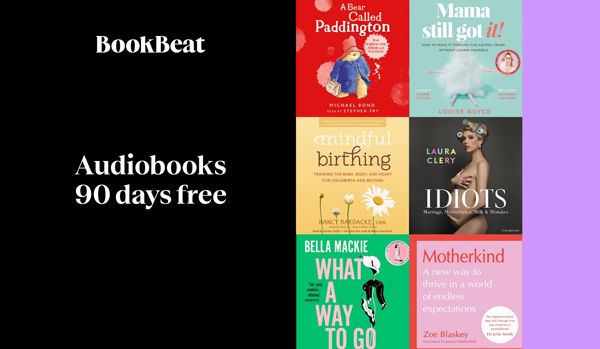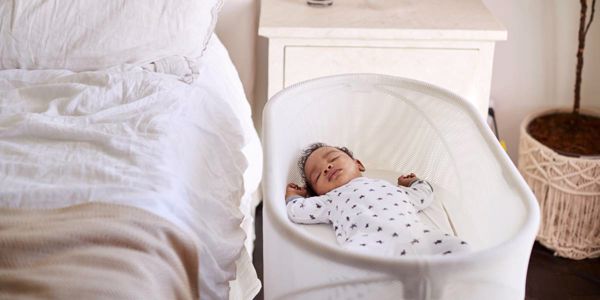One thing we know about babies is that they don’t sleep for very long. New parents can expect their sleep to be disrupted for quite some time. How long? Well, that depends on your baby.
For most of human history, babies have slept close to their mothers, but in recent years (following the ideas of Dr Spock whose 1946 book said parents should put baby to bed and not return until the morning!), the idea has come about that baby needs to be taught to go to sleep and if your baby is not following the schedule then its somehow your fault as a parent. What rot!
The pressure on present-day parents to ‘get baby to sleep through the night’ is enormous. Each baby is unique and their need for sleep will vary, even on a daily basis. Forcing your baby to sleep is impossible. All you can do is provide the right environment so that it's easier for them to fall asleep when they are ready, which isn’t necessarily when you want them to sleep!
But there are some things you can do to help your baby to sleep.
Keep your baby comfortable
Babies should be fed and comfortable – many babies hate having a dirty nappy and won’t settle. After a few hours, they will wake, needing to be fed again, simply because their stomach is so small. It’s normal to have a feed at night through most of their first year. As soon as baby starts to stir and you wake, feed him and resettle. For the first few months at least, it is helpful to have your baby sleeping in a crib next to your bed so the disruption on you is less.
Bedside cots are very popular and there is a wide choice, though there are disadvantages to having the crib permanently attached to your bed. Don’t be tempted not to attach it; an accidental push can move it away leaving your baby in a dangerous situation. Make sure that it is at the right height so your baby cannot roll into bed with you. Most importantly, ensure there is no gap between the crib mattress and the side of your bed.
Some babies sleep better in sleep sacs. These keep them warm without the likelihood of getting entangled in blankets. And, for daytime sleeps and bedtimes in the summer, blackout blinds can help.
Sleep Hygiene
Sleep hygiene is a phrase often bandied around. All it means is that everything is calm around sleep time. Just before bed is not a good time to play rowdy games. So, lots of soothing as you get him ready with gentle movements as you change him. Sleep needs to be a lovely place to go and safe to stay; not a time of stress. Babies pick up on your stress so are unlikely to settle if you are stressed. That’s why sitting with your baby in a rocking chair is so successful – it calms you both! Just embrace the cuddles and a moment of quiet in the day.
Although we believe we ought to keep very quiet when babies are asleep, it is often the case that your baby will sleep better if there is some sound. It is the sudden loud noise which tells your baby something is not safe that wakes them. There are several apps or mobiles which play a soothing sound or a lullaby, giving your baby something to listen to, or a classic white noise machine. Started at the right time, these can be very effective.
Soothing scents
One classic scenario is when you have planned a lovely night out: You’ve got your glad rags on, and the babysitter is here. Then your baby throws a tantrum. Believe it or not, the reason is likely to be your perfume! Babies learn the smell of their mothers soon after birth, and that smell is reassuring. Ideally, settle baby before you get ready, but in any case, wait until you are almost through the door before applying that alluring scent!
For some babies, this reassuring smell is very important. Try sleeping for a couple of nights with muslin in your armpit and under your breast to pick up that mummy smell. Let baby sleep with the muslin tucked safely away but close. Incidentally, if you are travelling, take the sheets from your baby’s crib with you to use, rather than clean ones or those provided by your accommodation. The different environments will be disconcerting enough but if there’s the familiar smell, all’s well!
Conclusion
Remember, babies will sleep when they are ready, and you cannot force a baby to sleep. Don’t let anyone convince you that letting a baby cry alone in his crib is a good idea. Baby WILL wake frequently and so will you. However, sleep deprivation is a form of torture, so be kind to yourself! Nap when baby naps (and ignore the housework!). Above all, don’t let yourself get stressed! Go for walks – especially in a natural environment, listen to music or do whatever you enjoy doing such as cuddling your wonderful baby!
Eventually baby will sleep through the night. Until then, take care of yourself and your baby and accept that looking after a tiny baby is exhausting!






